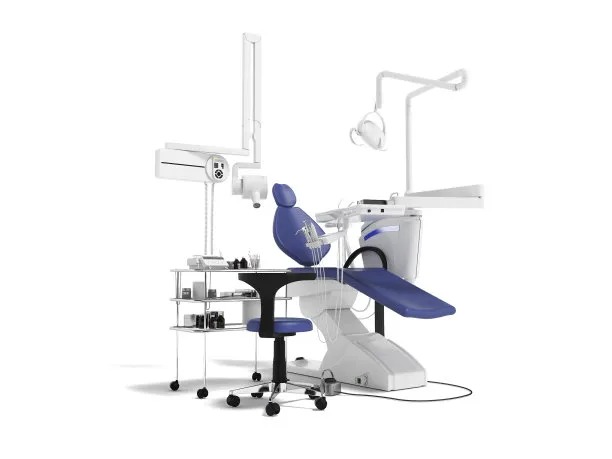Summary: Root canal treatment is often necessary to save damaged or infected teeth, yet it is crucial to consider several important precautions before undergoing the procedure. This article emphasizes the importance of choosing a qualified dental professional, understanding pain management options, ensuring proper diagnostic procedures are in place, and knowing the expected recovery process. By adhering to these precautions, patients can achieve optimal dental health and peace of mind throughout the treatment journey.
1. Selecting a Qualified Dental Professional

Choosing the right dentist or endodontist is one of the most vital steps before undergoing a root canal treatment. A qualified professional will have the necessary experience and skills to perform the procedure effectively. Researching online reviews and ratings can provide insights into a dentists reputation and prior patient experiences.
Additionally, consider seeking recommendations from friends, family, or other healthcare providers. It is beneficial to select a dental professional who specializes in root canal therapy, as they will have extensive training and knowledge in endodontics.
During the first consultation, it is crucial to ask questions about the dentist’s experience, the techniques used, and any potential risks. Building a good rapport will also help ensure comfort and communication throughout the entire process.
2. Understanding Pain Management Options
Many patients feel anxious about pain associated with root canal treatment, so understanding pain management options is essential. Discussing these options with your dentist can help alleviate fears. Common methods include local anesthesia, sedation dentistry, or even nitrous oxide to help keep you relaxed during the procedure.
It is also important to inquire about post-treatment pain management strategies. Your dentist may prescribe pain relievers or suggest over-the-counter medications to mitigate discomfort after the procedure.
Preparing for the pain afterward can reduce anxiety. Knowing what to expect both during and after the treatment can lead to a more relaxed state of mind and a better overall experience.
3. Importance of Diagnostic Procedures
Before a root canal procedure, comprehensive diagnostic steps must be taken. An X-ray will typically be performed to evaluate the condition of the tooth and determine any surrounding issues. This imaging will guide the dentist in understanding the infections extent and the root canals shape.
Additionally, your dentist might conduct a pulp vitality test to assess the status of the nerve inside the tooth. This diagnostic tool is crucial for developing an effective treatment plan tailored to your specific needs.
Failing to have proper diagnostic procedures can result in complications during treatment, so its vital to discuss any tests your dentist may recommend before the procedure begins.
4. Knowing the Recovery Process
A clear understanding of the recovery process is essential for patients undergoing root canal treatment. Post-treatment care typically involves resting, taking prescribed medications, and avoiding hard or chewy foods for a specified period. Knowing what to expect can significantly reduce anxiety and improve satisfaction with the treatment.
Follow-up appointments may be necessary to ensure proper healing and to place a crown or permanent filling in the affected tooth. Understanding the timeline for recovery helps in planning life around the procedure effectively, avoiding unnecessary stress.
Being aware of signs of complications, such as persistent pain or swelling, is critical. Patients should feel empowered to contact their dentist should they experience any unusual symptoms during recovery.
Summary:
In conclusion, several significant precautions should be taken before undergoing root canal treatment to ensure optimal dental health. Selecting a qualified dental professional will set the foundation for effective treatment. Understanding pain management options, ensuring proper diagnostic procedures, and knowing the recovery process can help alleviate fears and prepare patients for what lies ahead.
This article is compiled by Vickong Dental and the content is for reference only.
Vickong Dental
Vickong Dental is a large medical group established in Hong Kong in 2008 by professors from well-known medical universities in Guangdong and Hong Kong, as well as medical doctors from key national '985' universities (including Master's supervisors and senior professors). The chain of branches brings together expert dentists with PhDs and Master's degrees from Hong Kong and Mainland China, committed to providing high-quality dental treatment.
"Vickong Dental Practices the University Motto of 'Healing and Serving Society,' with a Stable Operation for Sixteen Years. It Has Been honored with Hong Kong Enterprise Leaders's Choice,' and is a Global Trusted Implant Center for the Nobel Implant System. Recommended by Hong Kong Metro Broadcast and Guangdong Television, it Serves Customers from Over Thirty Countries and Regions, Gaining the Trust and Favor of Citizens from the Guangdong-Hong Kong-Macau Greater Bay Area and Surrounding Cities.

Thousands of customers' unanimous praise
The most recognized and highly recommended dental service by customers in the Guangdong-Hong Kong-Macau Greater Bay Area
We Ensure You Receive Detailed Care and Attention Here
Hong Kong standards, Shenzhen prices, Your Trusted English-speaking dentists

Vickong Dental Medical-Grade Instrument Disinfection Process
Vickong Dental Medical-Grade Instrument Disinfection Process

Vickong Dental Chain: A Warm and Comfortable Environment for Treatment






Appointment Hours

Q&A
Why choose Vickong Dental?
Vickong Dental practices the university motto 「Medicine to Benefit Society」, with each branch bringing together highly qualified dentists with doctoral and master’s degrees from Hong Kong and the Mainland, and has maintained seventeen years of steady operation。Recipient of 「2024 Hong Kong Enterprise Leaders Brand」, 「2025 Hong Kong Enterprise Leaders Brand」, a Nobel Biocare Global Trusted Implant Center, and a brand recommended by Metro Radio Hong Kong and Guangdong TV。
To date, we have served customers from more than thirty countries and regions,earning exceptionally high word-of-mouth recognition and trusted recommendations from residents across the Guangdong-Hong Kong-Macao Greater Bay Area and surrounding cities
We have eight major branches in Zhuhai、Shenzhen,and a consultation and service assurance center in Hong Kong,so you can book a free consultation at any time for any questions,which is very reassuring.
If I do not accept the quotation after the CT scan, will I be charged??
No! As long as the actual treatment has not started, you will not be charged any fees.
Will there be any additional charges during the treatment process?
No, there won’t be any additional charges. Before treatment begins, we will clearly explain the treatment plan and its corresponding fees. Only after the patient agrees and signs the consent form will we proceed with the dental service.
Can I pay in Hong Kong dollars?
Yes. Vickong Dental accepts payment in Hong Kong dollars. The amount will be converted based on the exchange rate of the day, and the applicable rate will be clearly communicated to you in advance.
Can I reschedule my appointment at any time?
Yes. Please contact us via **WeChat** or **WhatsApp** as early as possible, providing your original appointment time and details, along with your preferred new date and time slot for rescheduling.













